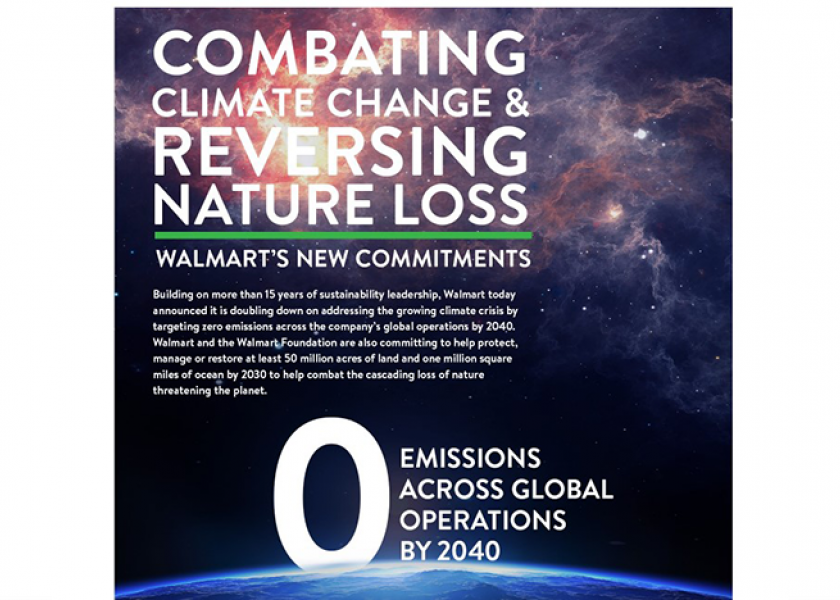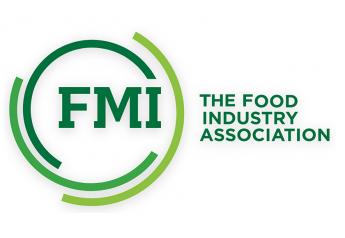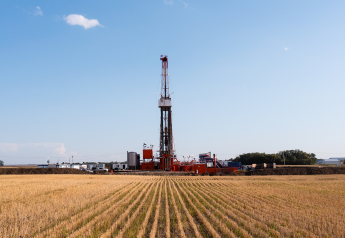Walmart sets goal for zero emissions by 2040

Walmart plans to achieve zero emissions and engage in a massive conservation effort in the next two decades on its journey to becoming a regenerative company.
The retailer aims to reach zero emissions without the use of carbon offsets, supported by achievement of the following goals:
- Powering its facilities with 100% renewable energy by 2035.
- Using electric vehicles and “zeroing out emissions” from all its vehicles, including long-haul trucks, by 2040.
- Using only low-impact refrigerants for cooling and electrified equipment for heating by 2040.
“We want to play an important role in transforming the world’s supply chains to be regenerative,” Doug McMillon, president and CEO of Walmart, said in a news release. “We face a growing crisis of climate change and nature loss, and we all need to take action with urgency. For 15 years, we have been partnering to do the work and continually raising our sustainability ambitions across climate action, nature, waste and people.
“The commitments we’re making today not only aim to decarbonize Walmart’s global operations, they also put us on the path to becoming a regenerative company, one that works to restore, renew and replenish in addition to preserving our planet, and encourages others to do the same,” McMillon said.
Walmart’s conservation effort, with the goal of helping protect, manage or restore 50 million acres of land and one million square miles of ocean by 2030, will include:
- Preserving at least one acre for every acre developed by the company in the U.S.
- Urging the adoption of regenerative agricultural practices, sustainable fisheries management and forest protection and restoration.
- Working with suppliers to source from “place-based efforts” designed to preserve ecosystems and improve livelihoods.
Currently, renewable energy powers about 29% of Walmart operations, and the company diverts about 80% of its waste from landfills and incineration globally, according to the release. However, much of Walmart’s environmental impact comes from its supply chain, so it is also working with suppliers on the Project Gigaton initiative. Since that effort launched in 2017, suppliers report avoiding 230 million metric tons of emissions, per the release.








